 They can become principals or vice principals, and perhaps even superintendents, in K-12 school districts. The median salary for these positions in 2017 was $94,390, according to the U.S. Bureau of Labor Statistics. The agency predicted 8 percent growth, about average among all professions, from 2016-26.
They can become principals or vice principals, and perhaps even superintendents, in K-12 school districts. The median salary for these positions in 2017 was $94,390, according to the U.S. Bureau of Labor Statistics. The agency predicted 8 percent growth, about average among all professions, from 2016-26.
Some colleges, particularly smaller ones, hire master's degree holders in teaching, administrative and project management roles. Postsecondary education administrators, who typically must have up to five years' experience, earn an average of $92,360. The 10-year job growth is projected at 10 percent.
There are also positions in continuing adult education, professional development, technical education instruction and administration, child care administration, and curriculum development. Among other opportunities are training, lecturing, communications and professional management jobs in the corporate world.
Entrance requirements for master's degree programs often include a bachelor's in education from an accredited college or university, with a certain minimum grade-point average; successful completion of the Graduate Record Examination (GRE) or another test; letters of recommendation; essays or other writing samples, as well as a statement of purpose or goals; and administrative or faculty interviews. Some universities mandate teacher licensure and classroom experience.
Ranking Methodology: "It's science!"
The researchers and writers at Best Master's Degrees don't make recommendations based upon preference– we back our rankings with science. Here's a quick breakdown of how we organize ranking data:
- Finances (40%)
- Academic Rigor (35%)
- Student Gratification (25%)
Nearly half of the data used to score each ranking involves finances and are acquired from sources such as the National Center for Education Statistics, the U.S. Department of Labor, U.S. Department of Education, Glassdoor, and PayScale. Financial data encompasses the cost of tuition, fees, and class supplied; the average price of living; access to financial aid and social services; and lastly, the projected annual salary acquired from degree outcomes and income for loan repayment. The second largest category of information involves the quality of education, how competitive degree applicants should be for consideration, and how exclusive a degree program is overall. The final 25 percent of collected data is dependent on student and alumni reviews from sources such as PayScale, Rate My Professor, and Students Review.
Want to Learn More?
The amount of information available for specific degrees is plentiful, and Best Master's Degrees aims to provide as many resources as we can. Check out our Methodology page for more information and resource links.
#45 — Regent University
Master of Education
Virginia Beach, Virginia
Program Website
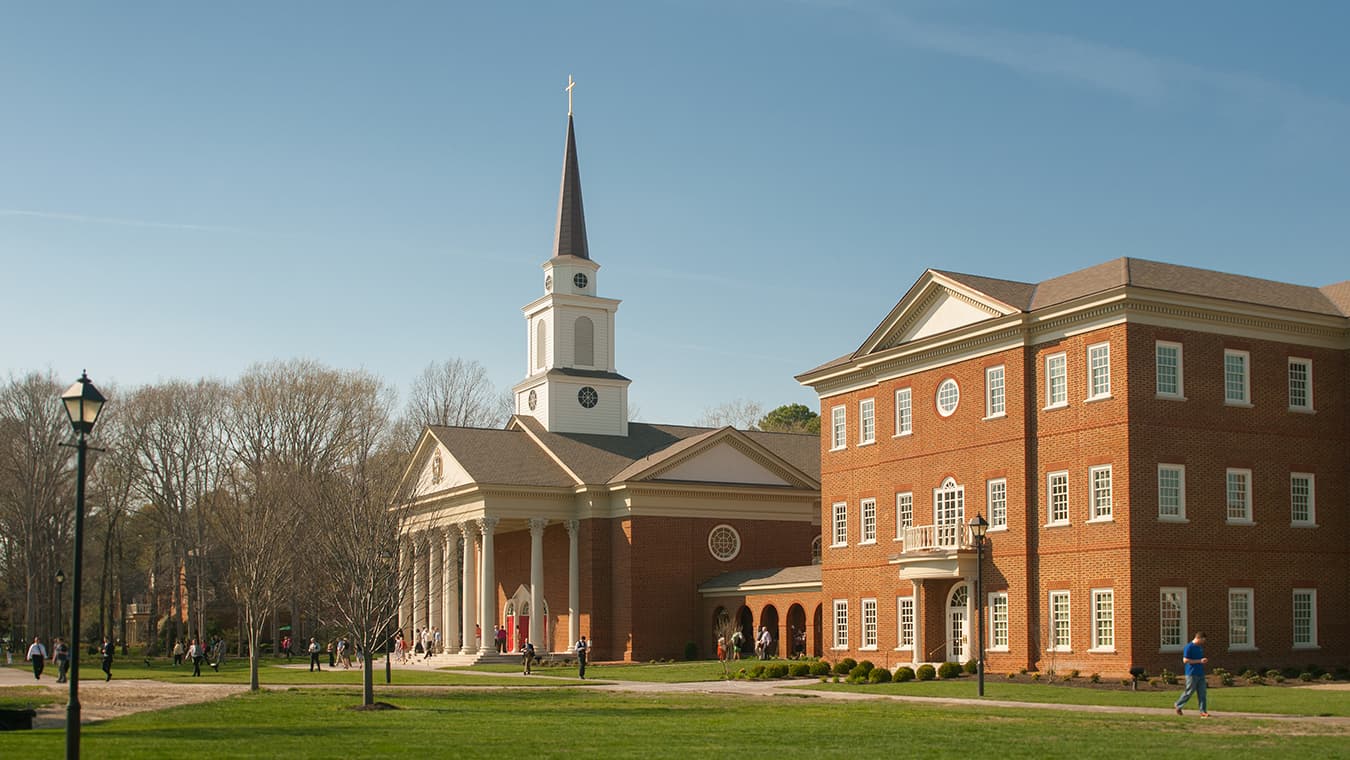
Televangelist Pat Robertson founded this private school in 1978 as Christian Broadcasting Network University. The named changed to Regent in 1990. The university have a faith-based approach to education. The student body is made up of about 10,400 students. U.S. News & World Report, in its 2019 rankings of the top 1,800 colleges and universities in the country, lists Regent at No. 201. Prospective master's degree students must submit their undergraduate transcripts, fill out a questionnaire and submit to a 20-minute admissions interview. There are 24 areas of concentration from which to choose, including Christian school administration, curriculum and instruction, educational leadership, elementary education, instructional design and technology, leadership in mathematics education, K-12 special education, and reading specialist. An individualized degree program is another option.
#44 — Kansas State University
Master of Science in Educational Leadership
Manhattan, Kansas
Program Website
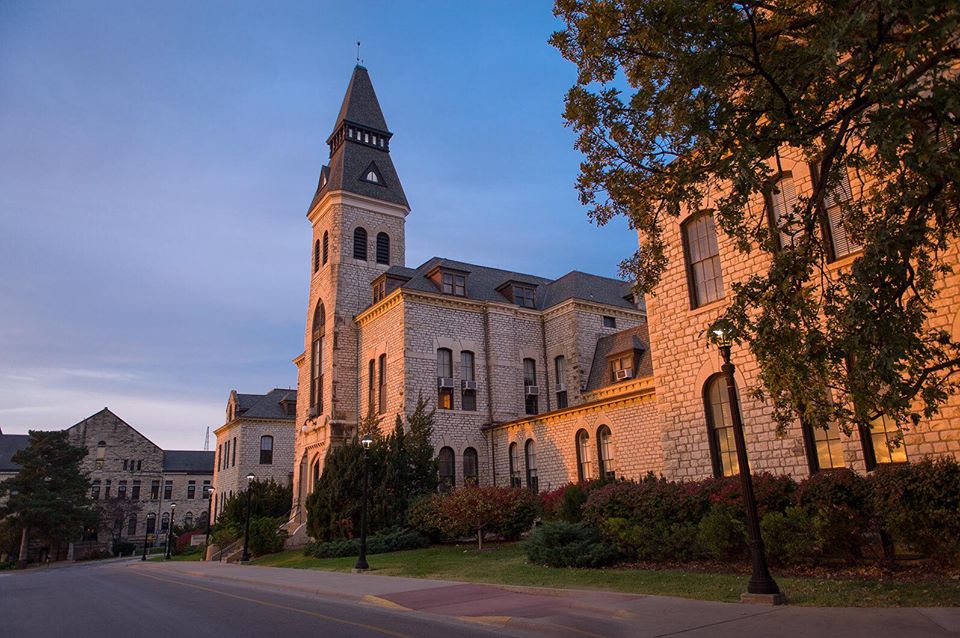
Nearly 20,000 undergraduates and more than 4,300 graduate students are enrolled at this large university. Established in 1863 as an agricultural school, K-State has expanded to offer instruction in multiple fields of study. Each year, the university awards 73 types of master's degrees to more than 1,000 students, 96 percent of whom find jobs soon after graduating. The master's of science in educational leadership program is designed for those wishing to become teachers or principals in preschool through 12th grade. Among the acceptance requirements are filling out an online application, paying a fee, uploading college transcripts, writing a statement of goals and professional experience, submitting letters of recommendation, and completing a self-survey. The program entails 36 credit hours, including core courses concerning special education, assessment principles and research methods. Other classes focus on student learning needs and leadership operations.
#43 — University of Nebraska at Kearney
Master of Arts in Education
Kearney, Nebraska
Program Website
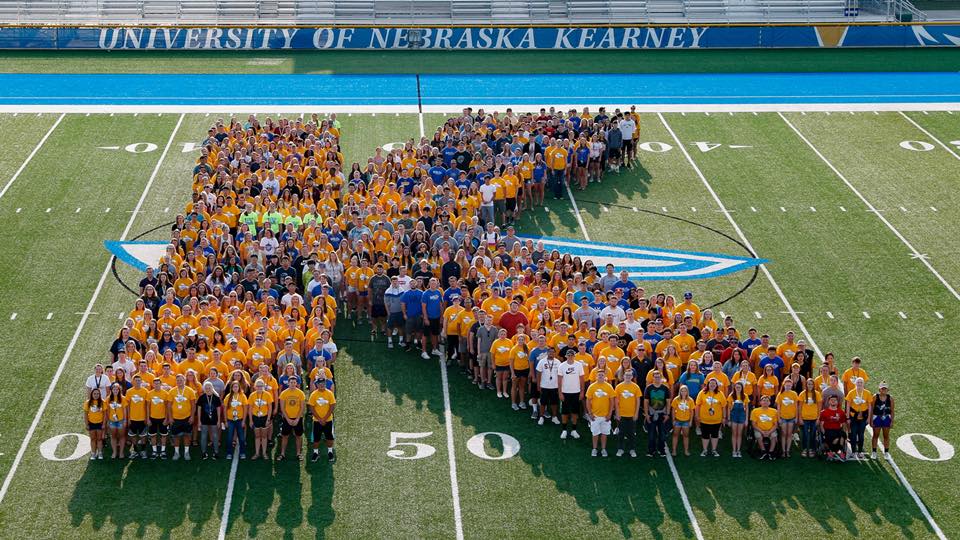
UNK has been training teachers since its inception in 1903. The university accepts 86 percent of applicants for baccalaureate programs. Online students communicate with faculty via email and discussion forums, using the university's specialized software. There are multimedia presentations and streaming videos. Students seeking master's degrees in education must have an undergraduate grade-point average of at least 2.75 and three letters of recommendation, write a resume and essay, and undergo a faculty review and evaluation process. Specialties are available in school principalship and special education supervision, with a thesis option. Graduate students are required to achieve a 3.0 GPA in 36 credit hours. Classes cover topics such as education administration, social foundations of education, special education administration, current issues, assessment leadership, junior high and middle school administration, curriculum planning, human resources management, school business management, finances, legal issues, and research. An internship accounts for three to six percent of the credit hours.
#42 — American University
Master's in Teaching
Washington, D.C.
Program Website

A private school, American University has roots dating to 1893. It is one of the 100 most selective universities in the country, accepting only one of four baccalaureate admissions applications. The student-to-teacher ratio is an excellent 11:1. U.S. News ranks AU the 78th-best postsecondary educational institution in the United States. The job-placement rate for graduates is 100 percent. Education master's degrees are available in numerous concentrations: advanced studies, curriculum and instruction, early childhood education, educational business administration, educational technology, elementary education, and English as a second language to name a few. The 30-credit-hour programs take four to five semesters to complete. They are fully online, meaning books and other written materials are digital and the system can be accessed at any time. Students must submit an application form and fee, a statement of purpose, school transcripts, two letters of recommendation and a resume.
#41 — University of South Carolina
Master of Education in Educational Administration
Columbia, South Carolina
Program Website
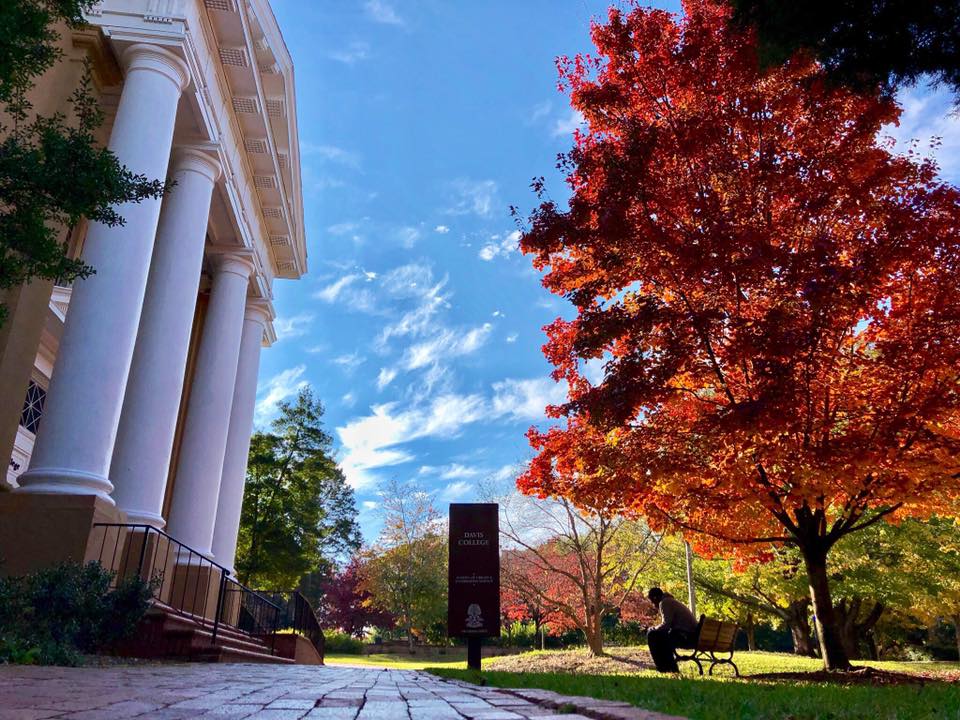
The University of South Carolina traces its history all the way back to 1801. Nearly 25,000 students, including more than 6,000 in graduate studies, are enrolled in 13 colleges and schools. USC awards more than 2,500 master's and doctorate degrees every year. U.S. News ranks the university's education college at No. 84 in the country. The online master of education in educational administration is intended for those who have already earned professional licensure, though relevant experience can substitute for this requirement. Students must have three years of practical experience by the time they complete the program. Other entrance requirements include a 2.5 baccalaureate GPA, an acceptable score on either the GRE or Miller Analogies Test, two letters of recommendation, a statement of intent and purpose, and a resume. The tuition rate for the two-year, 36-unit program is $22,273. Core courses cover leadership, personnel administration, supervision of instruction, school finance and business management, legal issues, and the principalship. Students may specialize in either elementary or high school education.
#40 — University of New England
Master of Science in Education
Biddeford, Maine
Program Website
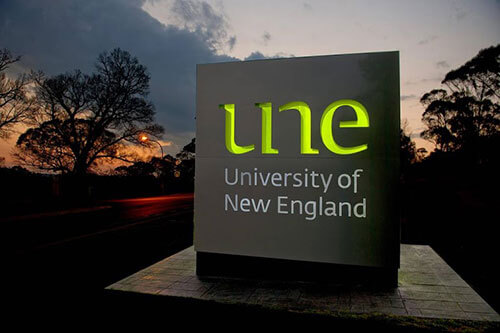
Pursuing an online degree is a great option for those who do not wish to study at UNE's campuses in Maine or Morocco.
This private, nonprofit school began in 1831 as St. Francis College. Today, it has about 14,000 students, more than 3,000 of them pursuing master's degrees. The university accepts 85 percent of applications for admittance, and no GRE is required. U.S. News ranks UNE's education college No. 84 in the nation. The online master of science in education has earned even higher acclaim. The two-year, 30-credit-hour program features optional focus areas in career and technical education, curriculum and instructional strategies, educational leadership, inclusion education, literacy education K-12, and teaching methodologies. Core courses are teacher as leader, differentiation theory and strategies, motivational theory and class management, and research. Elective classes allow students to customize their studies to align with career goals. Graduate admissions requirements include a 3.0 baccalaureate GPA, a goal statement essay, and applicable instruction experience.
#39 — Azusa Pacific University
Master of Arts in Educational Leadership
Azusa, California
Program Website
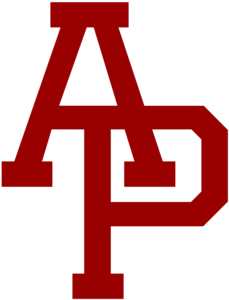
APU is an evangelical school and prominent member of the Council for Christian Colleges & Universities.
Founded in 1899 in Whittier, Calif., as the Training School for Christian Workers, this university has based its operations in Azusa (26 miles northeast of Los Angeles) since 1945. It is the oldest Bible school on the West Coast, with an enrollment of more than 10,000 students. APU reports an acceptance rate of 81 percent and a graduation rate of 67 percent. The average student enters with a high school GPA of 3.74 and an SAT score of 1145. The university handed out 1,110 master's degrees in 45 areas of study in 2016-17. Graduate programs have a student-to-faculty ratio of 10:1. Among the entrance requirements for the online master of arts in educational leadership program are a teaching or services credential, or designated subject credential, and verification of teaching or pupil personnel experience. The program, which "emphasizes a strong Christian approach," provides a credential in preliminary administrative service. Classes take place in five eight-week sessions. Students must be online six to 10 hours per unit each week to do assignments and take part in discussions.
#38 — University of Florida
Master of Education in Educational Leadership
Gainesville, Florida
Program Website
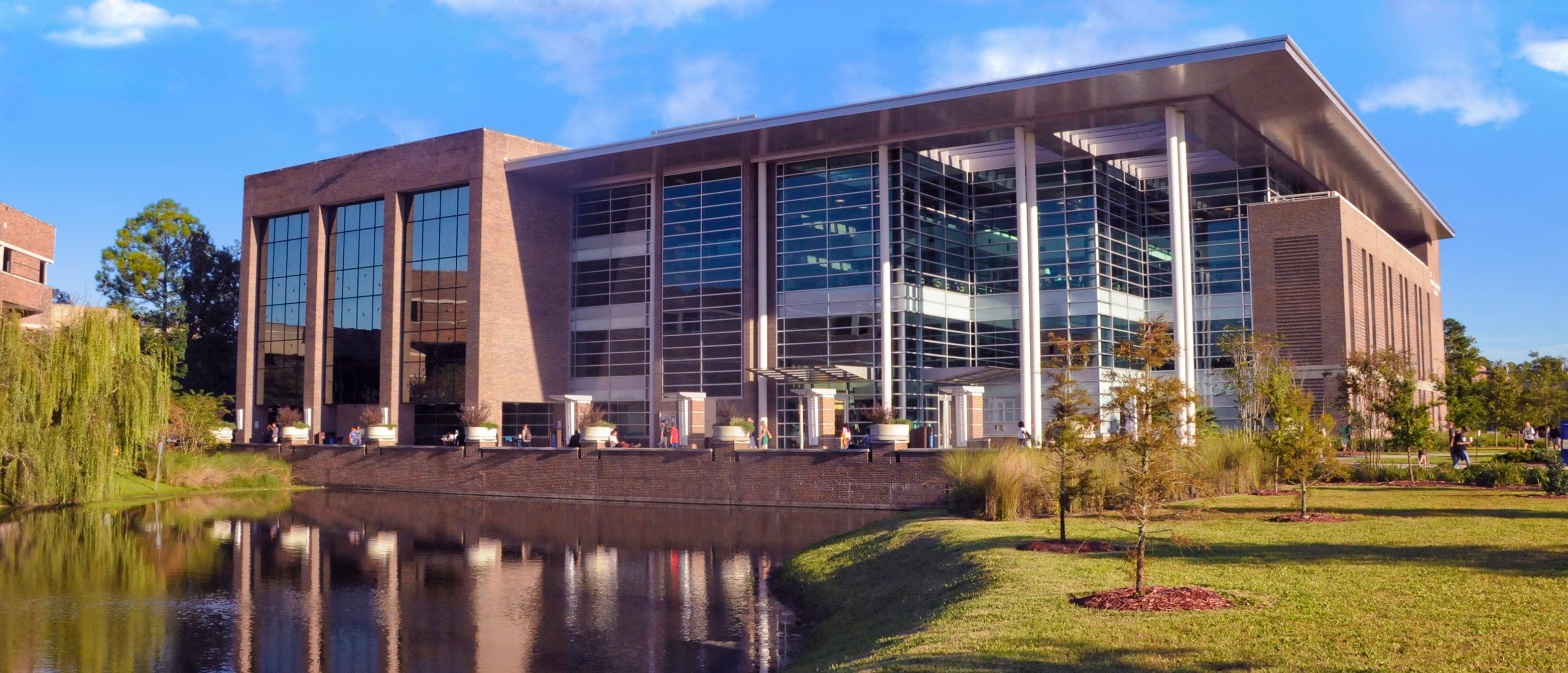
This large public school debuted in 1853 and moved to Gainesville in 1906, the same year it launched its School of Education. UF accepts only 48 percent of student applicants but graduates 87 percent of them. The average enrollee has a high school GPA of 4.3 and an SAT score of 1918. The university's 52,000-member enrollment includes more than 5,000 online students. U.S. News ranks the education college, which offers 17 master's programs, No. 30 in the nation. The online master's in educational leadership offers not only coursework, but also mentoring, field experience, and "support for practicing school leaders." Entrance requirements include a graduate GPA of at least 3.0. The typical class size is 10-15 students, and the 36-credit-hour curriculum takes less than two years to finish. Required courses are educational leadership, organization and administration, data-driven decision making, administration of school personnel, leadership in instruction, public school law, communications, principalship, technical leadership, public school finance, supervised practice in school administration, and leading change. Tuition and fees total $26,424.
#37 — George Washington University
Master of Arts in Educational Leadership and Administration
Washington, D.C.
Program Website
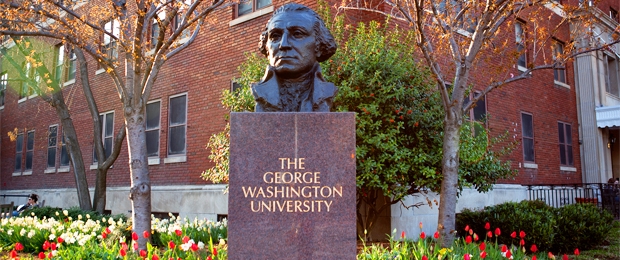
GWU is proud of its many prestigious alumni, which included nine members of the U.S. Congress in 2016-17.
U.S. News lists this school as the 63rd-best university overall and No. 58 in education programs nationally. GWU has more than 15,000 students in graduate studies who represent all 50 states and 134 countries. The institution, which came into being in 1821, boasts a job-placement rate of 91 percent for its alumni within six months of graduation. It consists of 10 colleges, including the School of Education and Human Development. Among the entrance requirements for graduate studies are an acceptable score on either the GRE or Miller Analogies Test, and a 250- to 500-word statement of purpose and goals. The online master's in educational leadership and administration is designed for those with at least one year of teaching experience who wish to qualify for K-12 central office leadership positions (like principal or assistant principal), other supervisory roles, increased responsibilities in teaching, higher education positions, government jobs, or employment with consulting organizations. Completing the 30 credit hours can take as little as two years.
#36 — University of San Diego
Master of Education
San Diego, California
Program Website

According to U.S. News, USD is the 85th best university in the country and its education college ranks 54th.
This private, Roman Catholic institution, founded in 1949, accepts students of all faiths. There are more than 9,000 students, 37 percent of whom represent racial minorities, in nine colleges and schools. USD awards about 925 master's degrees in 35 areas of study annually. The School of Leadership and Education Sciences Careers offers an online master's that involves 30 credit hours, which take 20 months to complete. Fourteen-week sessions begin three times a year. The tuition rate is $710 per credit hour. Applicants must have at least two years of teaching experience, but do not need credentials. A GRE score is optional. Requirements include a 2.75 undergraduate GPA, a telephone interview and two 500-word essays. The program's core courses are social justice and educational equity, cognition and learning, educational research methodology, qualitative methods in educational research, and a capstone seminar. Specializations are available in science, technology, engineering, arts and mathematics (STEAM); special education; curriculum and instruction; literacy and digital learning; and school leadership.
#35 — Sam Houston State University
Master of Education in Administration
Huntsville, Texas
Program Website
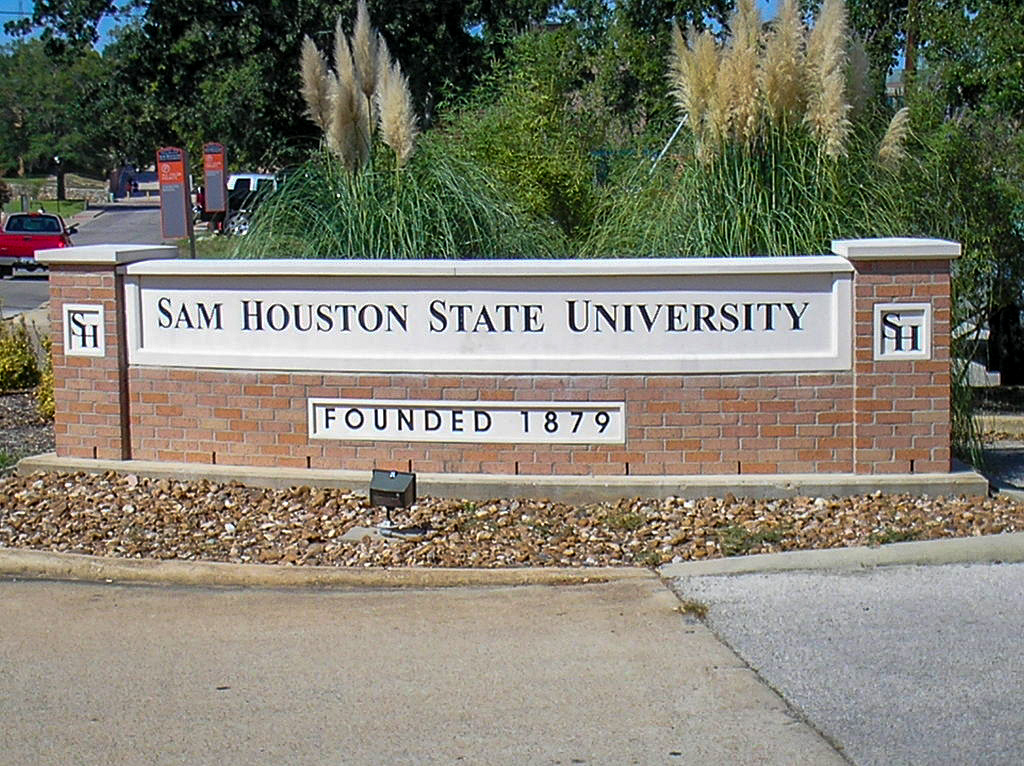
Praised for its diversity, SHSU recently ranked seventh in the country in regard to African-American student graduation rate.
This public school, established in 1879, was the first teachers' college in Texas and one of the earliest such institutions west of the Mississippi River. It is the 20th best university in the country for faculty credentials and training, according to U.S. News. More than 21,000 students are enrolled in seven colleges and schools, which offer more than 50 master's degrees. There are 20-plus online bachelor's and master's programs. U.S. News ranked SHSU's online graduate education programs in a tie for 28th nationwide. The university's College of Education crafted its 36-credit-hour curriculum for the master of education in administration to serve those in pursuit of certification as principals. Core courses cover school administration and organization; educational leadership strategies; school business management; and federal, state and local school regulations. Ninety percent of students accepted for the program are already employed. They have an average undergraduate GPA of 3.3.
#34 — Penn State World Campus
Master of Education in Educational Leadership
University Park, Pennsylvania
Program Website

PSU began offering distance education in 1892 with a correspondence study program for Pennsylvania farmers.
Penn State is a public, nonprofit institution that dates to 1855. Nearly 20,000 online students choose from more than 200 degree and certificate options. The university accepts two-thirds of those who apply for admittance. Students and faculty use email, discussion forums and webinars. There is live online chat support and a support hotline. The educational leadership master's is a 30-hour program. The typical student is a K-12 teacher who takes three or four courses per year. Classes focus on learning theory; teacher leadership; how schools work; teacher inquiry; curriculum design, theory and practice; teaching adults; learning processes in relation to evaluation priorities; technical applications; school improvement; principles of instructional supervision; designing staff development programs; and a final capstone inquiry course.
#33 — University of West Florida
Master of Education in Educational Leadership
Pensacola, Florida
Program Website
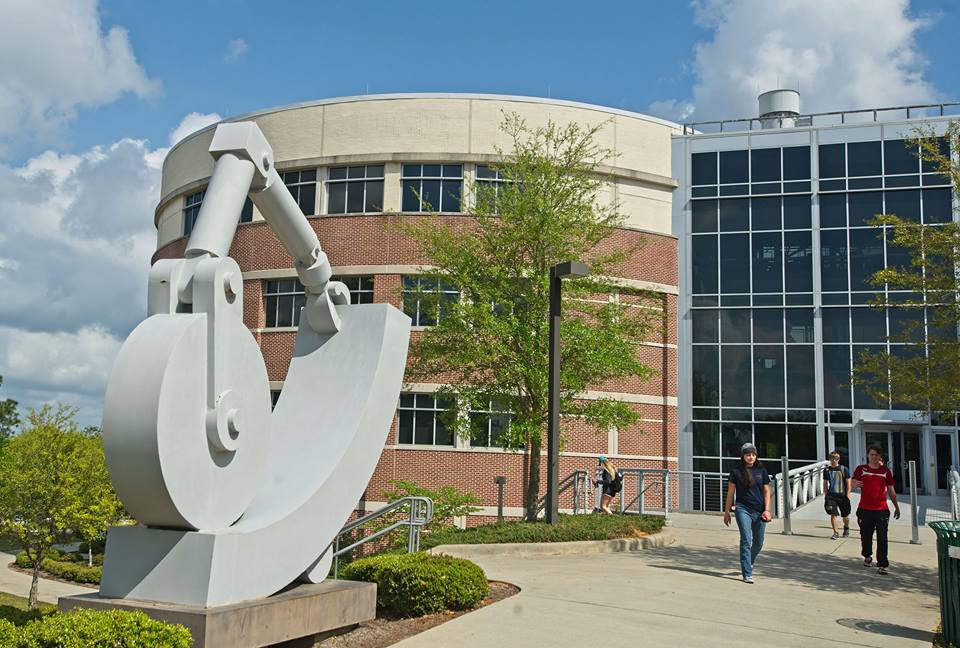
UWF "is known for one-on-one attention and small class sizes," according to U.S. News.
This public school, which consists of five academic colleges, has been part of Florida's state university system since 1963. Forbes Magazine ranks UWF No. 27 on its list of "best buy colleges." Admissions criteria are fairly stringent, with only half of undergraduate applicants being accepted. About 30 percent of the 13,000 students (3,000 of whom are in graduate studies) work for their degrees through UWF Global Online. The educational leadership master's is a 30-hour program. Requirements include a professional teaching certificate, at least three years of teaching experience, a 3.0 undergraduate GPA, and either a GRE or MAT score from within the previous five years. Students must earn a C grade or better in the following courses: school improvement theory and practice, introduction to educational leadership, administration of school personnel, law and education, school finances, the principalship, foundations of measurement, curriculum development, data-driven decisions using standardized student achievement data, and human relations and communication.
#32 — University of Missouri
Master of Education in Educational Leadership and Policy Analysis
Columbia, Missouri
Program Website
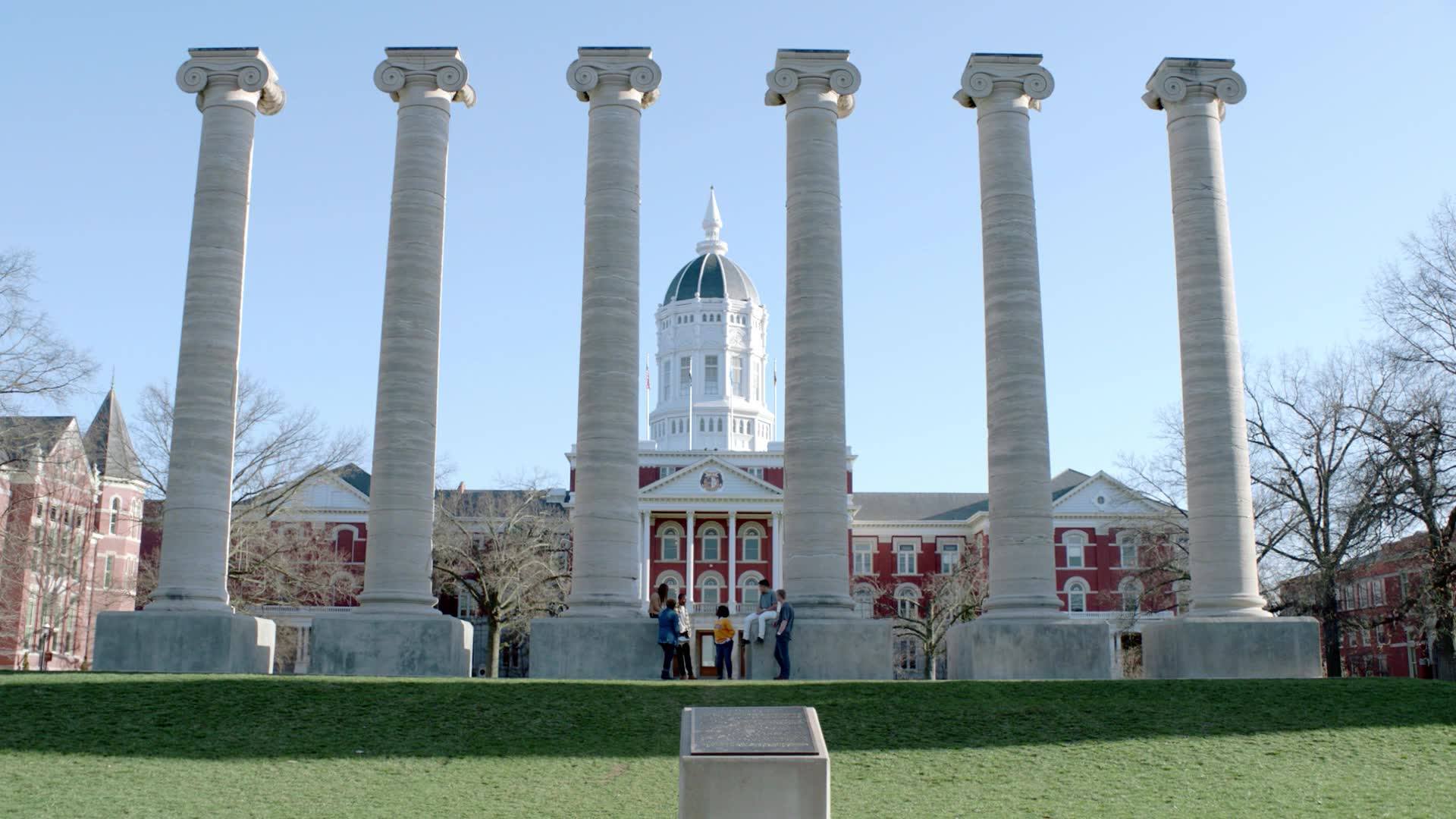
Founded in 1839, Mizzou was the first public university west of the Mississippi River.
The largest school in the state, this university enrolls more than 30,000 students from all 50 states and 100 countries in its 19 colleges. It is one of only 34 members of the prestigious Association of American Universities. U.S. News ranks Mizzou 129th in the country overall and rates its education degree programs No. 158. It is the 78th "best value school," according to the magazine. There are 90 online degree programs. The master's in educational leadership and policy analysis takes place online, but does require some campus visits. The program emphasizes PK-12 administration, providing certification to become an elementary or secondary school principal. Graduates also qualify for positions as educational policy analysts. Thirty-one to 37 credit hours of coursework include classes in data-driven and evidenced-based decision making, school improvement, ethics and policy making, providing professional development, finance and law in schools, and politics of school leadership. The estimated program cost is $16,035.
#31 — University of Cincinnati
Master of Education in Educational Leadership
Cincinnati, Ohio
Program Website

This renowned public research institution has had faculty and alumni who "defeated polio, invented Benadryl, and even dreamed up the very idea of cooperative education," according to the UC website.
With roots reaching back to 1819, UC enrolls more than 44,000 students. U.S. News has ranked it 68th in the country among public schools and 55th in terms of education degree programs. The master's of education in educational leadership involves 30 credit hours, which can be completed in five semesters (about 21 months). Most students are already employed as teachers and take two classes per 14-week semester. Core courses are educational leadership theory, leadership for social justice, instructional supervision, collaboration and team, school law, school finance, human resources administration in education, and curriculum development and data analysis. A principal internship is another requirement. Students must research, develop and lead a project in a school, and measure its effectiveness. The program offers five concentrations: early childhood leadership, educational leadership, online learning and leadership, principal leadership, and special education. UC master's graduates have become principals, assistant principals, union leaders, department chairmen, and school board contributors.
#30 — Liberty University
Master's in Education
Lynchburg, Virginia
Program Website

A majority of the 100,000 students enrolled at this private, evangelical school pursue their degrees online.
Liberty's website explains that the university's professors infuse a "Christian worldview" in their teachings. Jerry Falwell, a preacher who became famous leading the Moral Majority movement, created the institution in 1971. Seventeen colleges and schools provide degree programs in more than 600 subjects, with an outstanding student-to-faculty ratio of 8:1. Liberty is one of the 300 best postsecondary schools in the United States, according to U.S. News. Because the university offers 280 online programs, it attracts students from all 50 states and more than 80 other countries. Liberty has been ranked in the top five in the nation for its online opportunities. The master's in education is a 36-credit-hour program that takes the average student a year and half to finish. Tuition for full-time enrollees is $415 per credit hour. There are three optional "intensives": administration and supervision, math specialist, and reading specialist. Students use the Blackboard learning platform to do assignments and communicate with professors and other students.
#29 — Western Governors University
Master of Science in Curriculum and Instruction
Salt Lake City, Utah
Program Website
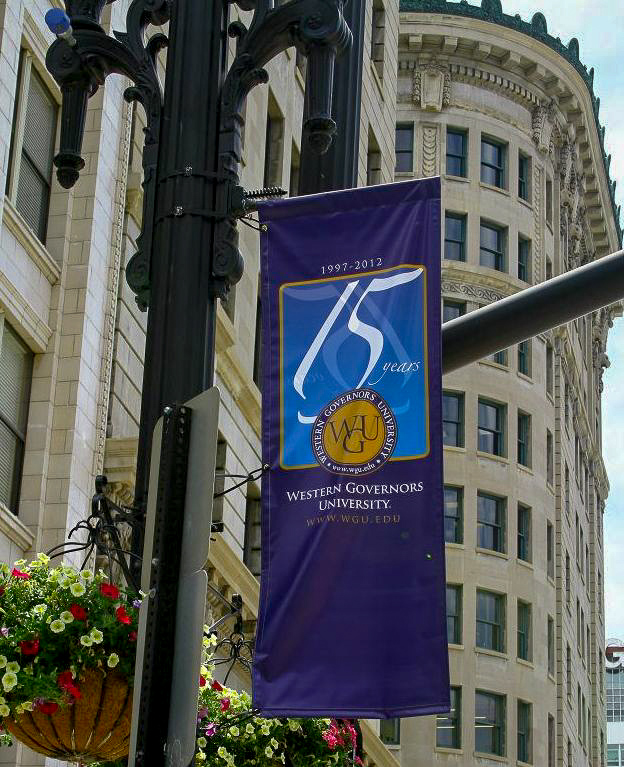
Nineteen U.S. governors founded this fully online university in 1997 to give residents of their states more options for obtaining college degrees.
A private, nonprofit institution, WGU has more than 11,500 students called "Night Owls" because of the opportunity to study 24/7 online. The school's unique "competency-based" approach measures learning rather than time, with enrollees completing courses at their own pace. The $3,240 tuition rate is per term, not per credit hour. Courses are crafted in collaboration with top employers. In a 2017 Harris poll of 301 executives who had hired WGU graduates, 100 percent of the respondents said the workers were "well prepared for their jobs." Eighty-nine percent of alumni hold positions in their degree fields. No university produces more STEM teachers. The master of science in curriculum and instruction program does not require a teaching license, but is designed for practicing educators. Key subject areas include introduction to curriculum theory, learning theories, educational psychology, curriculum design, curriculum evaluation, assessment for student learning, differentiated instruction, instructional theory, research foundations, research questions and literature review, research design and analysis, and research proposals.
#28 — Creighton University
Master of Science in Educational Leadership
Omaha, Nebraska
Program Website

Ninety-nine percent of recent Creighton graduates are employed, continuing their education or serving as volunteers.
This private, Jesuit, Roman Catholic school traces its history to 1878. Nearly 9,000 students attend classes in the university's nine colleges and schools. For 16 straight years, U.S. News has named Creighton the best university in the Midwest. More than 30 online degree programs are available. The master's in educational leadership consists of 36 credit hours that take about two years. Admissions requirements include a 3.0 baccalaureate GPA, a teaching certificate (with some exceptions), two years of teaching experience, and a background check. Tuition is $560 per credit hour, plus fees, books and other expenses. A specialization in school administration (for prospective elementary and secondary school principals) entails nine additional credit hours. A specialization in teacher leadership (to qualify as a department chairman, grade-level team teacher or instructional coach) involves 12 additional hours for endorsement in school administration. The coursework provides credentials for positions in public schools. Students planning to teach at Catholic institutions must take more classes.
#27 — Oregon State University
Master of Education in Adult and Higher Education
Corvallis, Oregon
Program Website
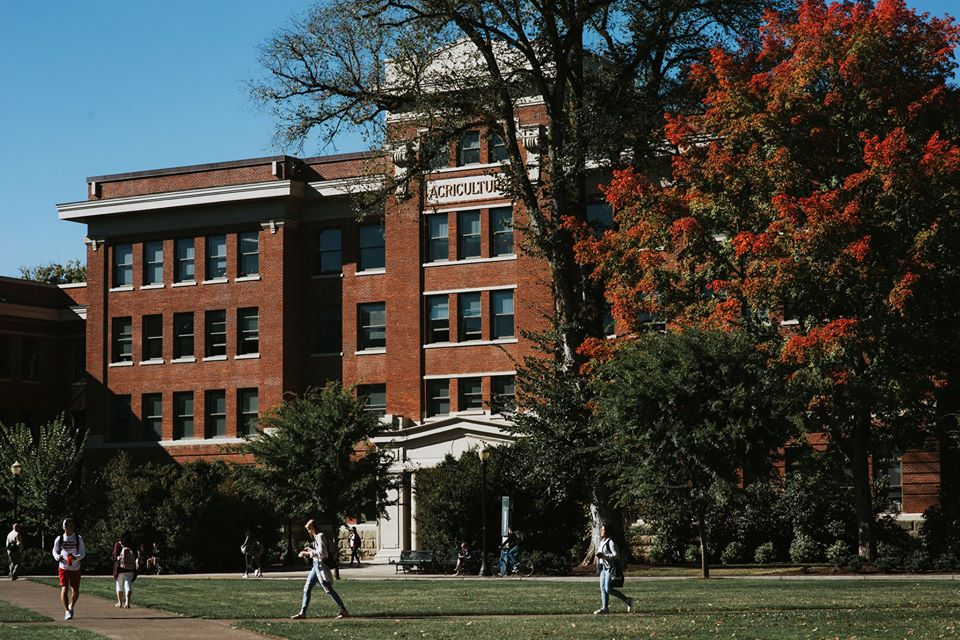
This school, which recently celebrated its 150th anniversary, established a college of education in 1909 to train public school teachers.
OSU's enrollment of more than 32,000 represents all 50 states and more than 100 countries, although 60 percent of the students are Oregon residents. The university is considered "selective" in its acceptance policy, admitting applicants with an average high school GPA of 3.26. U.S. News ranks OSU No. 102 in the nation and the Fiske Guide has placed it among the 44 "best value schools." Eleven colleges offer more than 100 graduate degrees. The master of education in adult and higher education takes two years to complete, with programs beginning each fall. It is "the only adult education program in the country that specializes in e-learning," according to the university. The 45 credit hours include an internship. Tuition costs $538 per hour. Courses include adult learning and development, instructional technology, needs assessment and research, instructional design, instructional strategies for adult learners, organization and systems theory, ethical and professional issues, program evaluation, and leadership and human relations.
#26 — Regis University
Master's in Educational Leadership
Denver, Colorado
Program Website

A group of priests who had been exiled from Italy founded this school in 1877.
Regis remains true to its roots by emphasizing "Jesuit-Christian traditions," but accepts students with diverse religious beliefs. The school has a teacher-to-pupil ratio of 14:1, with more than 3,500 students. Regis accepts about two-thirds of applicants and awards degrees to 45 percent of its students. The job-placement rate is 89 percent within six months after graduation. U.S. News ranks the university No. 26 among postsecondary institutions in the western United States, with the 194th-best online graduate education programs. There are 132 types of degrees, 80 of which are available online. The master's in educational leadership is a one-year, 33-credit-hour program that qualifies graduates for a principal's license in Colorado. Sessions begin in January, May and August. Practicing professionals design and teach the courses, which include school strategies and sustainability, community and communications leadership, fiscal leadership, data literacy and assessment, and peer mentoring and support.
#25 — University of Arkansas
Master of Education in Educational Leadership
Fayetteville, Arkansas
Program Website
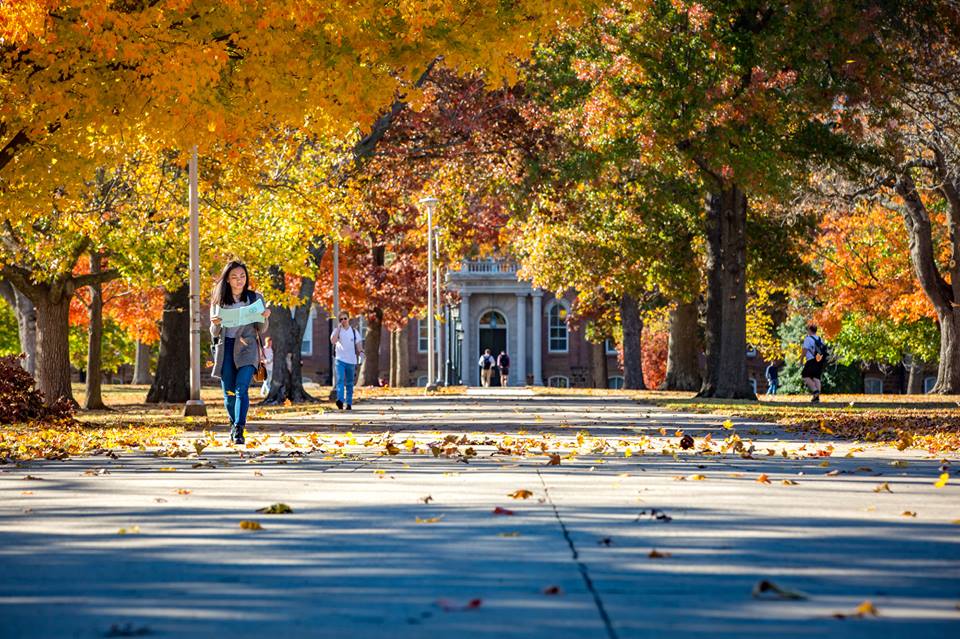
Among UA's claims to fame are having been the first university in the South to admit an African-American student without a court fight, and graduating future President Bill Clinton.
Since its humble beginnings in 1872 with a dozen students, this university's enrollment has grown to 27,800. Ten colleges and schools offer 201 academic programs, including 88 master's degrees. The average student comes with a high school GPA of 3.69 and an ACT score of 26. UA is the home of the discovery of Vitamin E and other innovations in nutritional science, as well as breakthroughs in radio technology and superconductivity. U.S. News ranks the university No. 152, and No. 78 among public schools, in the nation. The master of education in educational leadership is a 33-credit-hour program that involves two years of coursework. Sessions begin in the spring, summer, and fall. The program "provides professional preparation for educators seeking administrative positions in elementary and secondary schools." Among the entrance requirements is a valid teaching license. No GRE score is necessary for students with baccalaureate GPAs of 3.0 or better. Tuition costs $420 per credit hour.
#24 — Northern Illinois University
Master of Science in Educational Administration
DeKalb, Illinois
Program Website

Twenty percent of school superintendents in Illinois and one in 12 of the state's principals are NIU alumni.
This university has been a teachers college since its inception in 1895, though it now has six additional degree-granting colleges. The enrollment exceeds 19,000, with more than 5,000 students in graduate studies. The education college has 1,222 students and hands out 668 degrees annually. The faculty features five Fulbright Scholars. Requirements for master's degree programs in education include a 3.5 undergraduate GPA, a professional educator license, passage of either the Test of Academic Proficiency or the Basic Skills Test, a GRE score, a portfolio showing "evidence of achievement" in education, and an in-person interview with two faculty members. Coursework in the master's of educational administration program covers preschool through 12th grade, "the role of instruction with an emphasis on literacy and numeracy," Illinois professional teaching standards, students with special needs, and "collaborative relationships with all members of the school community." The university offers online master's degrees in 13 other educational specialties, as well.
#23 — Indiana University Bloomington
Master of Science in Educational Leadership
Bloomington, Indiana
Program Website
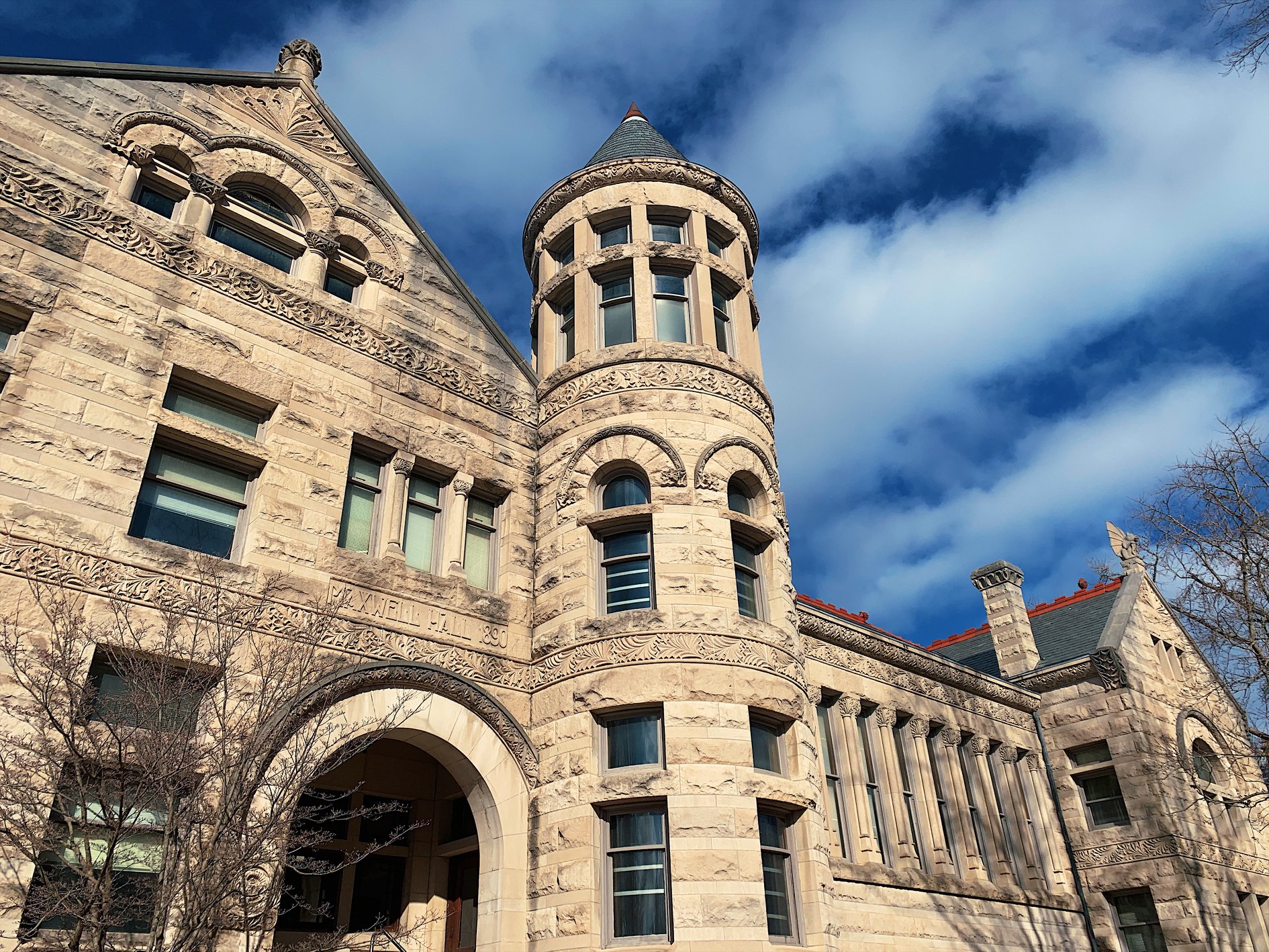
U.S. News has ranked IUB's online master's degree programs in education as No. 22 in the country.
One of the oldest institutions of higher learning in its region of the country, this university is preparing to celebrate its 200th anniversary in 2020. It began as a state seminary school and became Indiana University in 1838. The first African-American graduate received his degree in 1895. Today, 43,000 students – 24 percent of whom are racial minorities – represent 139 countries. Sixteen colleges and schools offer more than 550 academic programs. The College of Education has a dozen online master's programs. The master's in educational leadership entails 36 credit hours, with a tuition rate of $515 per hour for out-of-state students. The core courses are school and community relations, teacher development and evaluation, legal perspectives on education, K-12 principalship, data-informed decision making, and public school budgeting and accounting. Graduates qualify for positions as principals, assistant principals, district administrators, instructional coordinators, directors or supervisors, deans of students, college provosts, university registrars, educational consultants, and curriculum developers.
#22 — University of North Texas
Master of Education in Higher Education
Denton, Texas
Program Website

Each of the past 22 years, UNT has been ranked among the top 100 "best college buys" in the United States.
This institution has been a teachers college since its founding 128 years ago. More than 38,000 students select from a menu of 100-plus majors in 14 colleges and schools. UNT's admission policies are fairly selective, with about 70 percent of freshman applicants being accepted. The typical student's SAT score is higher than the national average. The graduation rate is 51 percent. U.S. News has rated the College of Education's online programs No. 4 in the country. The college provides six master's degrees online, including curriculum and instruction, teaching, special education, educational psychology, and early childhood development. The master's in higher education, general administration track, consists of 36 credit hours in four areas: 15 hours of core courses; one research class; six hours in a practicum, field problem or internship; and 12 hours of specialization courses. The core curriculum covers student demographics, cultural pluralism, finance and budgeting, history and philosophy, and organization and administration.
#21 — University of Massachusetts-Lowell
Master of Education in Educational Administration
Lowell, Massachusetts
Program Website
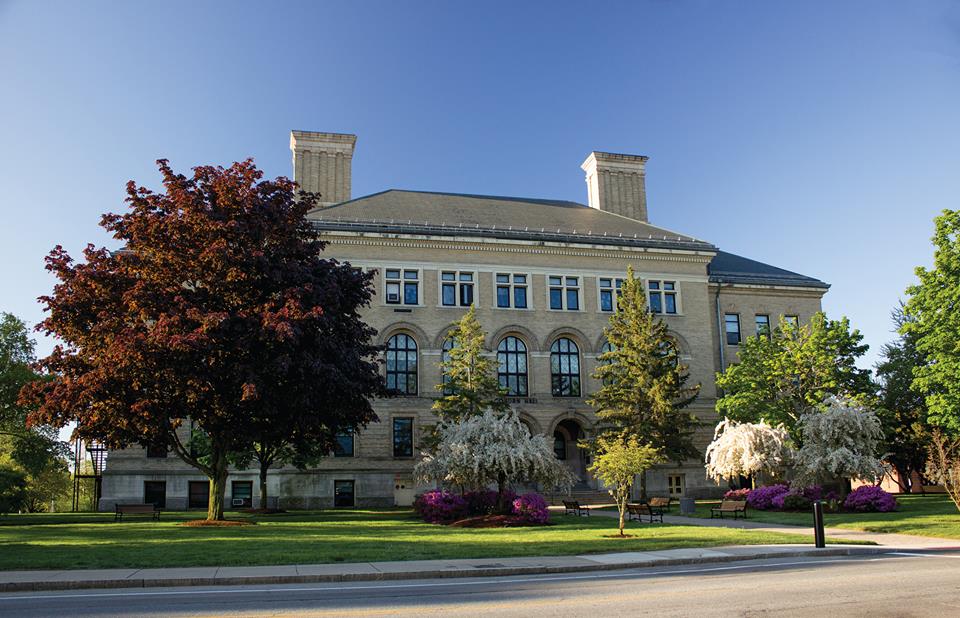
Located in the historic Boston area, this university bills itself as "the birthplace of Jack Kerouac and the Industrial Revolution."
U.S. News ranks UMass Lowell as the 157th-best postsecondary institution in the country and No. 80 among public universities. Enrollment has increased by 45 percent in the past six years. The university accepts fewer than 70 percent of applicants, with the average incoming freshman posting an SAT score of 1225 and a high school GPA of 3.5. Lowell has nearly 50 master's programs that award more than 1,000 degrees every year. The school claims to offer "one of the largest selections of online programs available." More than 29,000 enrollees are pursuing degrees remotely. Among the entrance requirements for graduate students are a 3.0 baccalaureate GPA and five years of K-12 teaching experience. There are three master's in education: administration, reading and language, and curriculum and instruction. The administration program involves 10 courses. The core classes are "the inclusive school"; the role of the curriculum and instruction leader; principles of supervision; principalship PK-12; leading the professional learning community; program evaluation; managing resources and finances; and school policy and law.
#20 — Mississippi College
Master of Education in Educational Leadership
Clinton, Mississippi
Program Website

MC, a private Christian school, is the second-oldest Baptist-affiliated college in the United States.
Established in 1826, Mississippi College was the state's first institution of higher learning. In 1831, it became the earliest coeducational college in the nation to grant a degree to a woman. U.S. News recently praised MC as the No. 4 "best value college" in the country. More than 5,000 students are enrolled. The acceptance rate for freshmen is 82 percent and the graduation rate is 53 percent. MU's programs in elementary, special and higher education are highly rated. Tuition for online graduate programs in education is $588 per credit hour. The school offers online master's degrees in higher education administration, teaching arts, curriculum and instruction, elementary education, and special education, in addition to educational leadership. The latter program consists of 39 semester hours, beginning in the summer term, that require 15 months to complete. The focus areas are personal and interpretational communication, instruction, organization, resources, political issues, and informational topics. The final semester features seminars, practicums and internships.
#19 — University at Buffalo
Multiple Master's Degrees in Education
Buffalo, New York
Program Website

UB, which partners with more than 90 universities worldwide, has been among the 25 colleges in the United States with the most international students each of the past 16 years.
Founded in 1846, this school boasts "the largest and most comprehensive campus in the 64-campus State University of New York system." It is No. 1 on the Wall Street Journal / Times Higher Education list of the best public universities in the state. U.S. News ranks UB 89th in the country. In the fall of 2018, 34,508 students – including nearly 10,000 seeking graduate degrees – were taking classes. A dozen colleges and schools offer more than 300 academic programs. The faculty includes Nobel and Pulitzer Prize winners. U.S. News rates the university's online graduate programs in education, in which 147 students are enrolled, as the 25th best in the nation. The tuition rate is $555 per credit hour. UB has a number of master's degrees in education. They include technology education, English education studies, information and library science, literacy education studies, math education studies, music education studies, rehabilitation counseling, school librarianship, and science and the public.
#18 — University of South Florida
Multiple Master's Degrees in Education
Tampa, Florida
Program Website
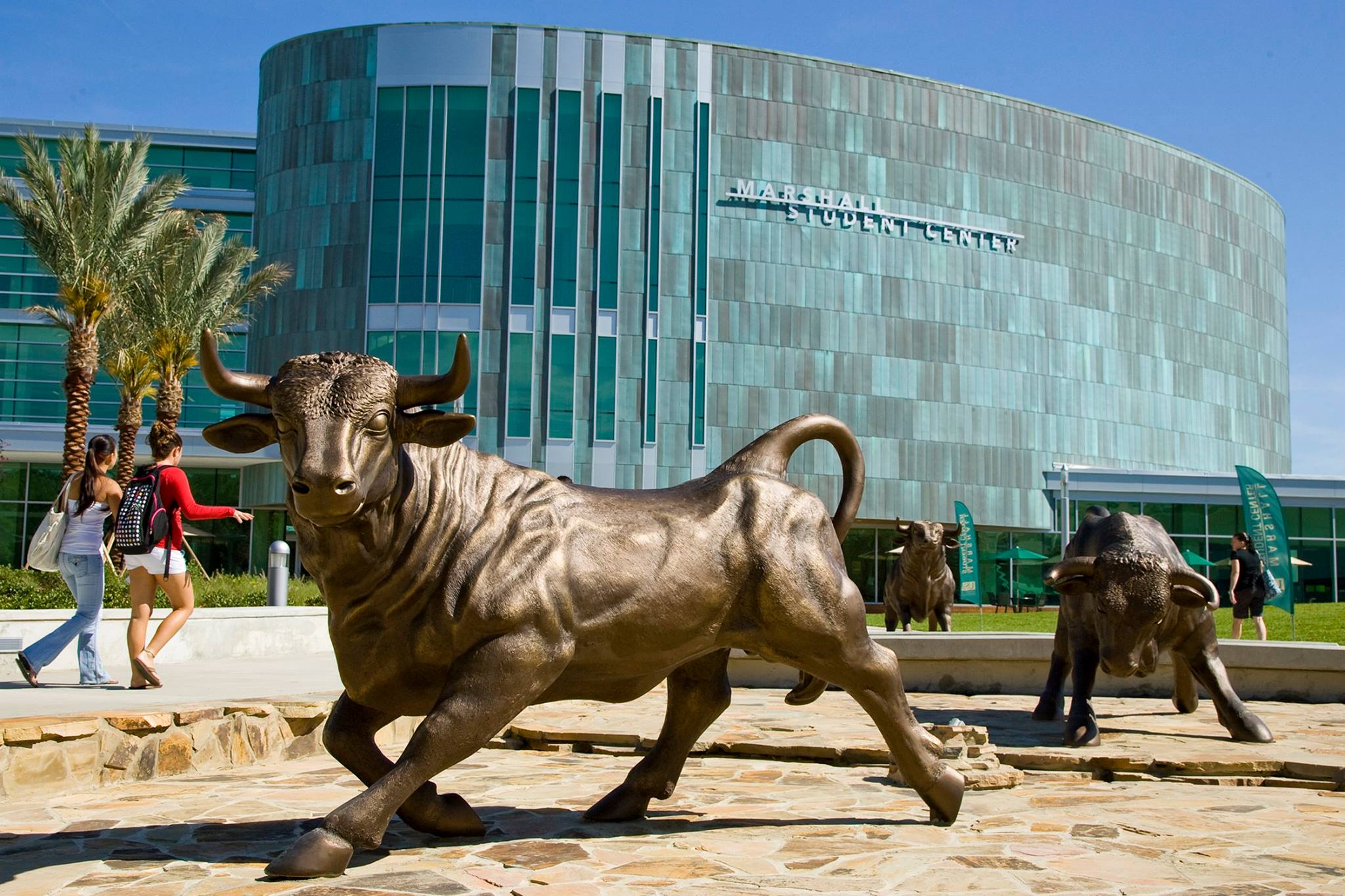
This school, where racial minorities make up 41 percent of the enrollment, is nationally recognized for "closing the gap between white and black student success."
In the 62 years since its founding, USF has grown into a huge institution with 50,755 students in 14 colleges. Nearly 11,000 pupils are in graduate studies. The university offers more than 180 majors and 130 graduate programs. The acceptance rate is just 45 percent, but two-thirds of those admitted earn degrees. About 130 countries are represented, with international enrollees making up 10 percent of the student body. U.S. News ranks USF 124th-best overall and No. 58 among public universities nationally. Eight of the school's graduate programs are in the newspaper's top 50. The education college offers master's degrees in the following specialties: autism spectrum disorder and severe intellectual disabilities; career and technical education; gifted education; physical education; reading K-12; exceptional student education; special education with concentrations in ESE, BD, LD and ID; instructional technology; learning design and technology; and secondary education with an emphasis in teaching English to speakers of other languages.
#17 — Arizona State University
Master of Education in Educational Leadership
Phoenix, Arizona
Program Website
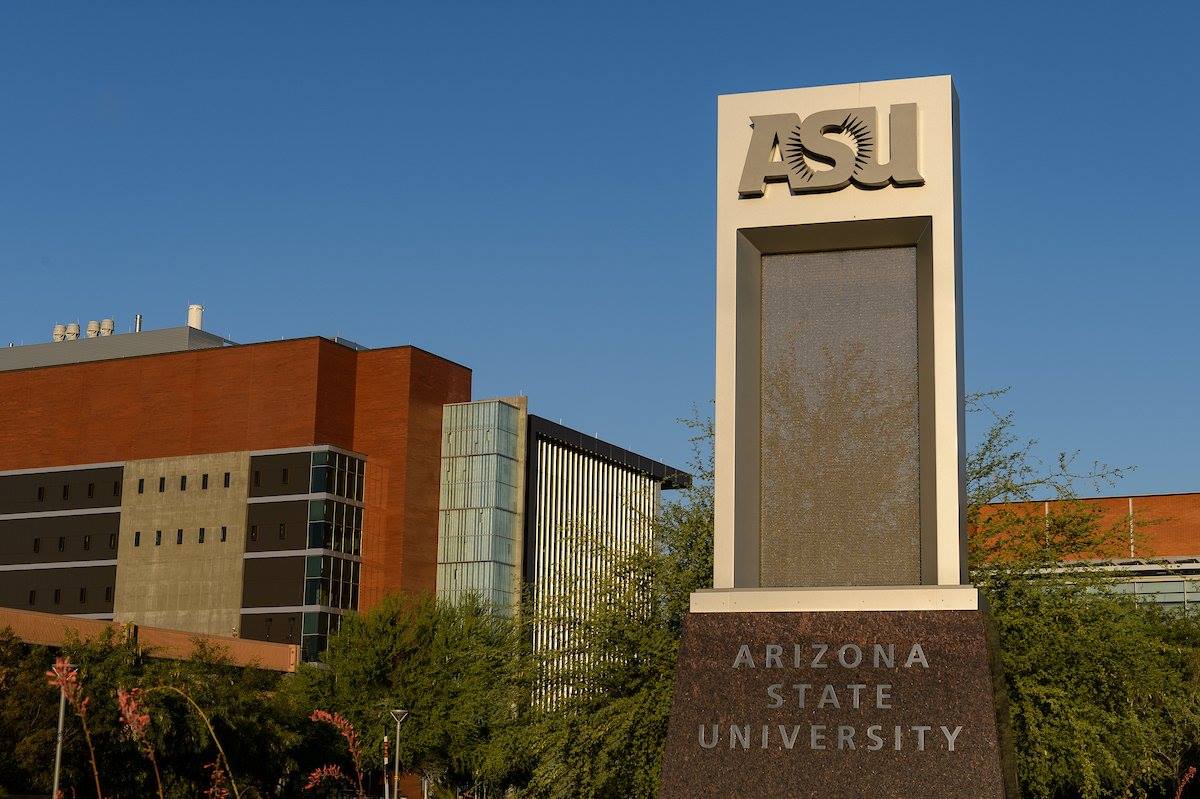
In 1886, ASU (called the Territorial Normal School at the time) became the first postsecondary educational institution in Arizona.
This public university, with 42,000 students in 17 colleges, is the No. 1 school in the country on U.S. News' list of most innovative universities. ASU accepts 83 percent of applications for admittance and graduates almost two-thirds of its students. The faculty has had five Nobel Prize laureates. The university is home to the nation's 13th-best education college and second-best undergraduate online degree programs, according to U.S. News, which surveyed 1,545 schools in compiling its rankings. ASU Online offers 90 undergraduate and 64 graduate degrees, with six start dates per year. The master's in educational leadership involves 11 classes and 36 credit hours. Featured courses are competency and performance in educational administration; school, family and community connections; school finance and human resources; and critical issues in educational leadership. The program not only provides the training required to be a school principal in Arizona; it also qualifies graduates for positions as guidance counselors, education directors and instructional coordinators.
#16 — University of Nebraska-Lincoln
Master of Education in P-12 Administration
Lincoln, Nebraska
Program Website
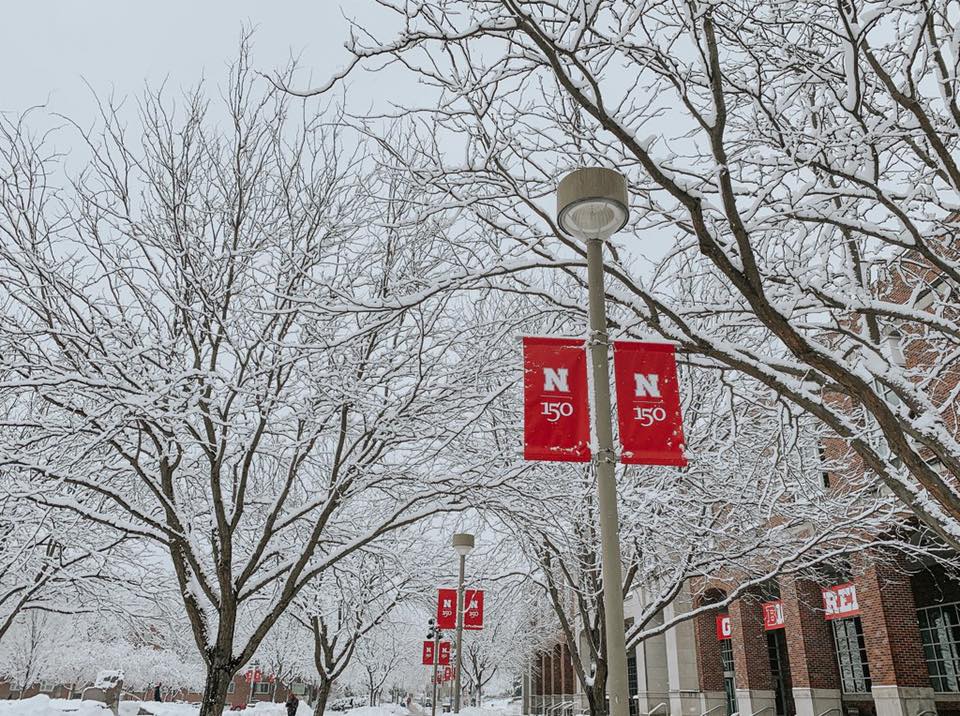
UNL is one of the 20 "best buys" in postsecondary education in the United States, according to the Fiske Guide to Colleges.
UNL's roots go back 150 years. It enrolls about 26,000 students in 10 colleges that offer 150 majors. U.S. News ranks UNL No. 129 in the country. This school is selective, accepting only 64 percent of student applications and graduating 39 percent of those it admits. There are a dozen online education master's programs, including nine in curriculum and instruction for various grade levels and subject areas. The master of education in P-12 administration degree entails 36 credit hours. Tuition is $356 per hour for Nebraska residents and $722 for out-of-state students. Among the requirements are a teaching certificate, two years of full-time teaching experience, and a baccalaureate GPA of at least 2.5. Those who have not had training in human relations and special education must take those classes as part of the master's program. The core courses include finance, law faculty, staff appraisal, school culture, and student behavior.
#15 — University of Central Florida
Master of Arts in Educational Leadership
Orlando, Florida
Program Website

UCF, with an enrollment of more than 68,500 students, is one of the largest universities in the country.
Founded in 1963, this institution consists of 13 colleges with 224 types of degrees (including 88 master's programs). Minorities make up about 45 percent of the student body, and 70 percent of all enrollees graduate. UCF accepts only half of those who apply for admission. The average incoming student has a 4.12 high school GPA and a 1328 SAT score. U.S. News ranks the university as the 165th-best postsecondary institution in the nation, 34th-best for undergraduate teaching programs, and among the top 10 for innovation. The online master's in educational leadership is a 30-credit-hour program that takes as little as two years to complete. Tuition is $327 for Florida residents and $695 for out-of-state students. Courses cover topics such as contemporary concerns in education, evaluation practices, diversity, and legal aspects of school operation. Graduates qualify for careers as principals, assistant principals, college provosts, deans of students, district administrators, human resources administrators, and instructional coordinators.
#14 — Clemson University
Master of Education in Teaching and Learning
Clemson, South Carolina
Program Website
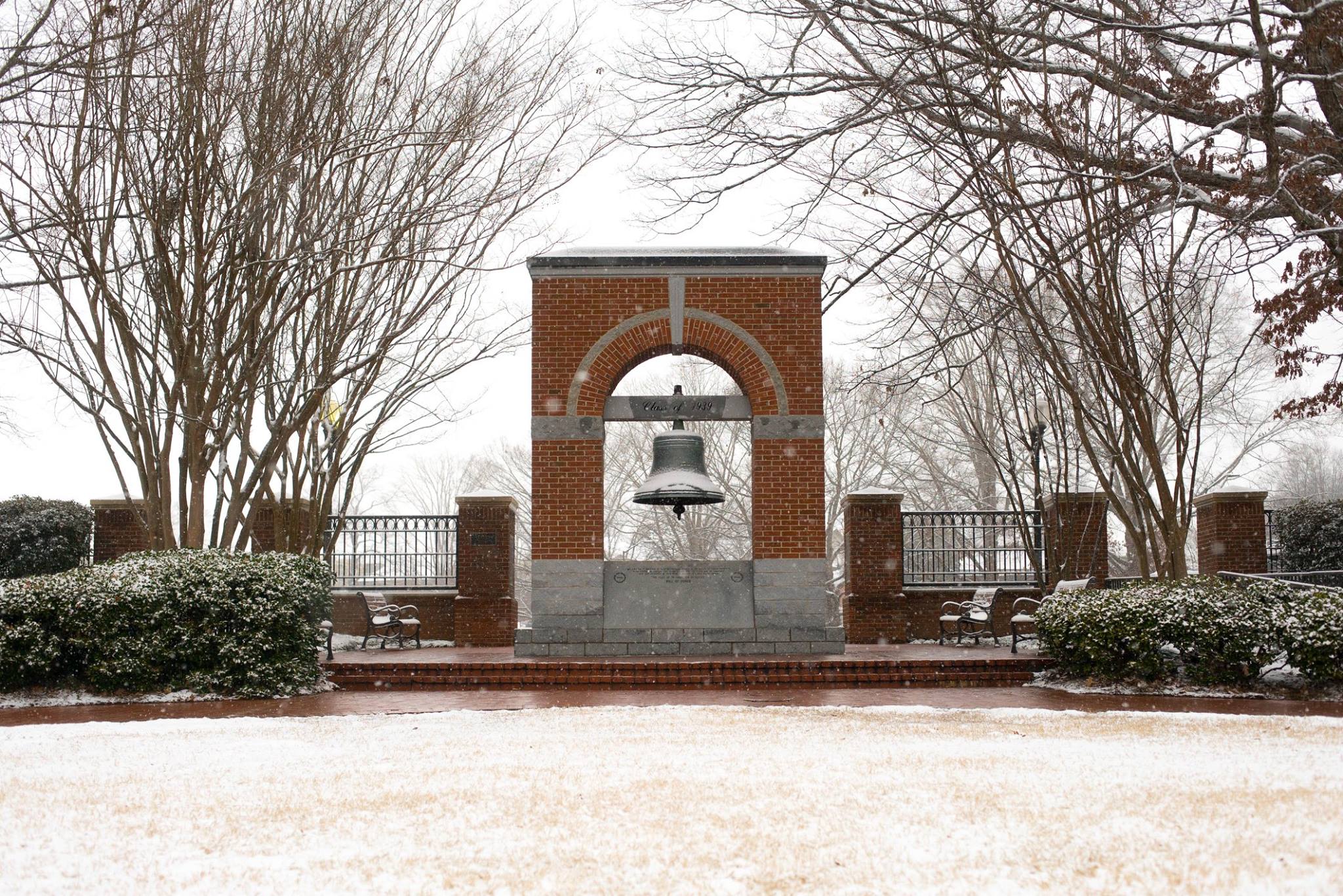
In the latest U.S. News national rankings, Clemson placed 66th overall, first for online graduate education programs, and 16th for undergraduate teaching.
Since CU opened in 1893, its enrollment has grown from 44 to 20,000. The university accepts about half of those who apply for tuition. Seven colleges offer 110 graduate programs, including education master's degrees in school administration, counseling, human resources and leadership in higher education. The master's in teaching and learning is the best program of its kind in the United States, according to U.S. News. Designed for current K-12 educators, its entrance requirements include classroom teaching experience and a 3.0 baccalaureate GPA. Those who fall short of the grade standard may substitute a top 50 percent score on either the GRE or MAT. Tuition is about $14,000. Core courses, which make up 18 of the 30 credit hours, are curriculum theory, learning and motivation in context, contemporary issues in assessment, classroom-based research, cultural diversity in education, and a capstone project. There are three specialization areas: STEAM, experiential learning for early childhood, and instructional coaching.
#13 — University of Pittsburgh
Four Master's Degrees in Education
Pittsburgh, Pennsylvania
Program Website

One of the oldest institutions of higher learning in the country, Pitt traces its history to 1770, when classes met in a log cabin.
Pitt enrolls about 36,000 students, 9,500 of them in graduate studies, who choose from among 490 degree programs in 16 schools. The 15:1 student-to-faculty ratio is impressive for such a large institution. The university accepts just 54 percent of those who apply for admission but graduates 82 percent of them. U.S. News ranked Pitt 26th on its 2019 list of the best public postsecondary schools in the country. The School of Education, founded more than a century ago, is the No. 34 such college nationwide and offers the 28th-best online education programs, according to U.S. News. Master's degrees are available in elementary education, engineering and communications, mathematics education, and secondary social studies education. There is also an online certificate program in special education, as well as a hybrid (online and on campus) master's in special education with a concentration in vision studies. Tuition and fees for part-time graduate students are $11,850 per term (Pennsylvania residents) and $19,800 (out of state).
#12 — Ball State University
Master of Arts in Educational Administration and Supervision
Muncie, Indiana
Program Website

BSU is the 171st-best postsecondary school in the country and No. 91 among public universities, according to U.S. News.
The five Ball brothers known for manufacturing glass containers founded this institution in 1899 as a private teacher training school. Today, more than 22,000 students are enrolled in seven colleges. More than 140 graduate degrees and certificates are available. About 15,500 students are in the Teachers College's online graduate programs, which U.S. News rates No. 38 nationally. The college is in the top 25 for the number of nationally recognized educator preparation programs it offers. Among the online graduate degrees are those in elementary education, special education, educational psychology, and applied behavior analysis. The master's in educational administration and supervision is a 36-credit-hour program, with principal licensure, which can be completed in 18-20 months. Applicants must have two years of teaching experience. The core courses are an introduction to educational leadership, human resource development, the school principal, and the principles and procedures of the curriculum. A principal internship is also required.
#11 — University of Houston-Clear Lake
Master of Science in Educational Management
Houston, Texas
Program Website

Ninety-seven percent of this school's students, including those studying online, live off-campus.
Founded in 1971, UHCL is the 17th-best public institution of higher learning in the nation's western region, according to U.S. News. Women make up nearly two-thirds of the 9,000-member student body. More than 60 percent are minorities. The acceptance rate is 73 percent, and more than 80 percent of students graduate. UHCL's four colleges offer 97 academic programs, including 45 graduate degrees. Among the master's programs in the College of Education are instructional design and technology, and school library and information science. The master of science in educational management features school principal certification. It is a 30-credit-hour program that students can finish within 15 months. The core courses include introduction to educational leadership, curriculum, principalship, school resource management, school law, appraisal of teaching, and the principal and school-community relations. Students also must take two of the following four classes: applied statistics, research design and analysis, applications of technology, and foundations of multicultural education.
#10 — University of Illinois at Urbana-Champaign
Master of Education in Educational Policy, Organization and Leadership
Champaign, Illinois
Program Website
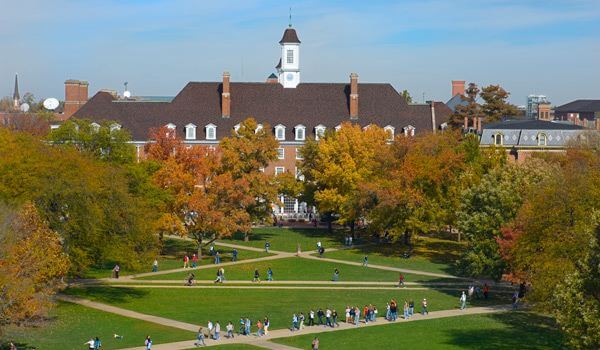
The U of I library, established more than 150 years ago, trails only Harvard in terms of the number of books at a U.S. university.
This is the 46th-best university and No. 13 among public postsecondary schools nationally, according to U.S. News. Alumni, faculty, and researchers have won 30 Nobel Prizes and 28 Pulitzers since UIUC's founding in 1867. Sixteen colleges enroll more than 47,000 students, accepting about two-thirds of those who apply and graduating 84 percent. The university, which began offering distance-learning opportunities in 1995, now has 94 online programs (88 of them at the graduate level) that enroll more than 72,000 students around the world. Entrance requirements for master's programs include a 3.0 baccalaureate GPA, successful completion of the GRE and a "scholarly writing sample." The master's in policy, organization, and leadership features five areas of concentration: diversity and equity, administration and leadership (specializing in teacher leadership), global studies, human resources development, and learning design and leadership (with a selection of five specialties). The tuition rate is $473 per credit hour.
#9 — Michigan State University
Master of Arts in Education
East Lansing, Michigan
Program Website
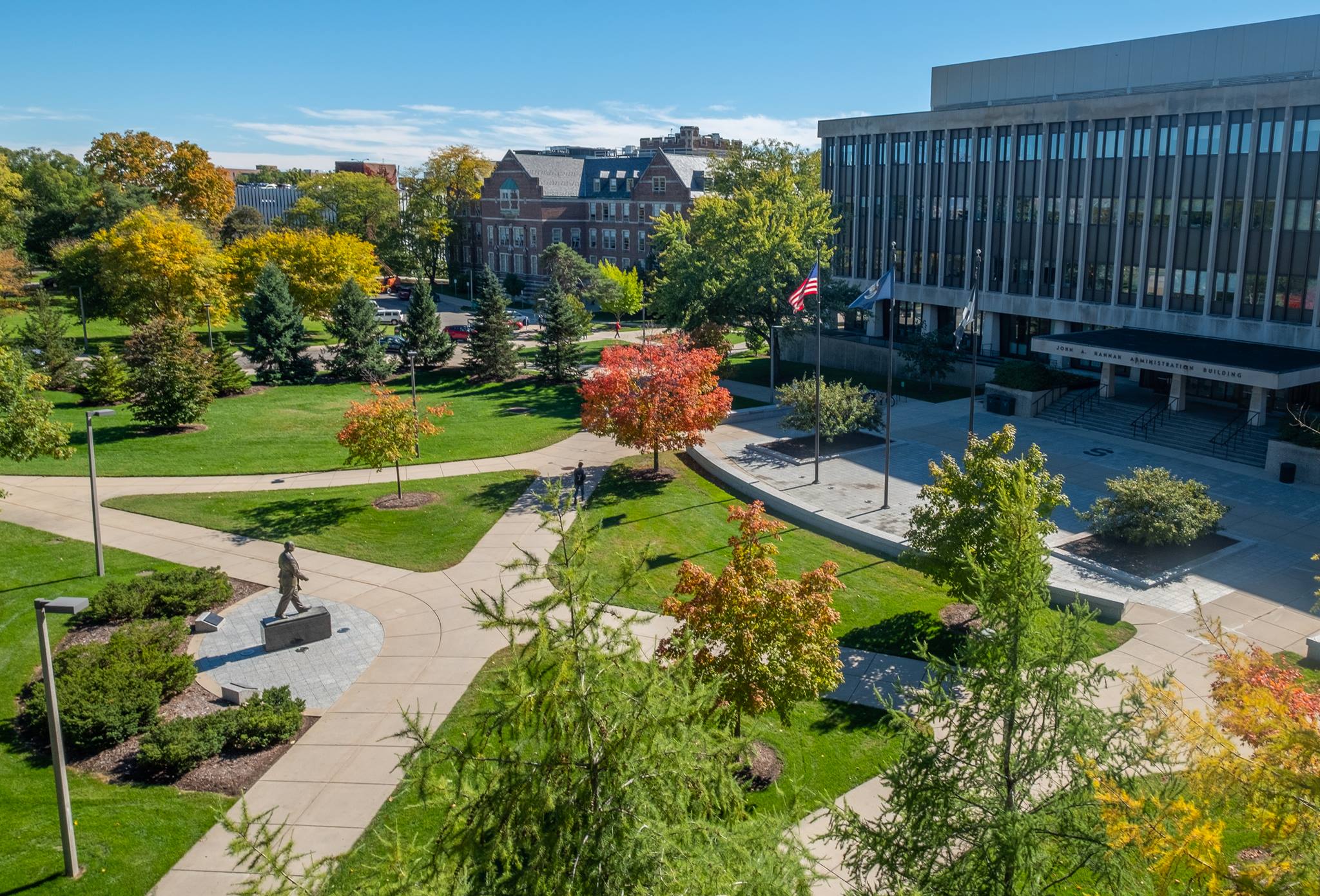
MSU is among the 70 best universities in the world, according to the Wall Street Journal / Times Higher Education survey.
This was an agriculture school from its inception in 1855 until becoming a full university in 1964. MSU enrolls more than 50,000 students representing 142 countries. Seventeen colleges offer more than 200 degree programs. The average student has a high school GPA between 3.5 and 3.9. Each of the past 24 years, U.S. News has ranked the university's graduate programs in elementary and secondary education No. 1 in the nation. The online graduate education offerings are the fifth-best, according to the site. There are eight such programs. The master's of arts in education has six concentrations: special education, sport coaching and leadership, technology and learning, P-12 school and postsecondary leadership, literacy education, and science and mathematics education. Thirty credit hours must be completed within five years. Students take nine to 21 hours in their chosen concentrations, and may add a second concentration with nine additional hours. Required courses for everyone are concepts of educational inquiry and a capstone seminar.
#8 — University of Southern California
Master of Arts in Teaching
Los Angeles, California
Program Website
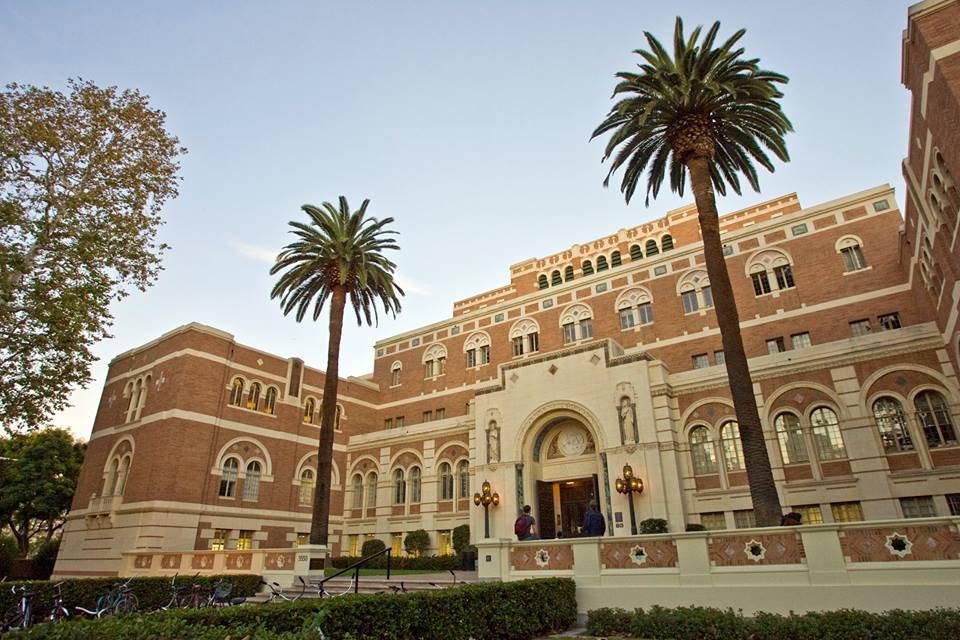
USC ranked 17th overall among 1,000 public and private universities that the Wall Street Journal / Times Higher Education organization analyzed.
This 140-year-old private school has 47,500 students, more than half of whom are in graduate or professional studies. In the fall of 2018, USC accepted just 13 percent of 64,000 freshman applications. The university graduates more than 90 percent of its students, who have an average high school GPA of 3.79. Faculty members in 23 schools include five Nobel Prize laureates. Education Week named five USC professors to its list of the top 200 "scholars influencing policy and practice." The Rossier School of Education is the 10th-best such college in the country, according to U.S. News. It has 11 master's programs. One of the five degrees offered online is the master of arts in teaching, a 28-unit program that can be completed within one to three years by studying part- or full-time. Students specialize in either multiple-subject elementary teaching or single-subject secondary teaching. A special education credential and a gifted education certificate also are available.
#7 — California State University-Fullerton
Master of Science in Education
Fullerton, California
Program Website

This school has received acclaim for its affordability, placing fourth in the "Best Bang for the Buck" ranking of U.S. universities.
Cal State Fullerton enrolls 14,400 students, including nearly 6,000 in graduate studies. U.S. News rates the university No. 126 in the nation overall and No. 38 for online graduate education programs. Only 42 percent of freshman applicants win acceptance and 56 percent graduate. The average incoming student has a 3.58 high school GPA. The university's eight colleges offer 109 academic programs, including 52 graduate degrees. At last report, there were 761 students in the online education master's program. Their average undergraduate GPA was 3.5, and 92 percent of them were already employed when they enrolled. Tuition is $743 per credit hour. An undergraduate degree is not necessary, but the university does require some coursework at the baccalaureate level (with some exceptions). Applicants must submit four letters of recommendation, as well as an essay, but do not need a GRE score. The program provides concentrations in educational technology, elementary curriculum and instruction, literacy and reading, secondary education, and instructional design and technology.
#6 — San Diego State University
Master of Arts in Educational Leadership
San Diego, California
Program Website

SDSU, where nearly two-thirds of the students are minorities, has won the Higher Education Excellence in Diversity Award many times in recent years.
Established as a training school for elementary teachers in 1897, this university became part of California's state college system in 1960. The enrollment of more than 36,000 includes 4,600 students in graduate programs. SDSU is among the top 10 U.S. postsecondary institutions for the number of students studying abroad. U.S. News ranks it 60th overall and 45th in innovation nationally. The newspaper rates SDSU's College of Education as the 54th-best such school. The university is highly selective, accepting only about a third of freshmen who apply for admittance. The average incoming student has a 3.73 high school GPA, an ACT score of 25 and an SAT score of 1208. Nine colleges offer 91 graduate programs, including the No. 11 master of education degrees in the country, according to Best Colleges. The master's in educational leadership entails 30 credit hours that a full-time student can complete in 15 months. Courses cover information technology, leadership and teaching, with a specialization in PK-12. Tuition costs $17,940.
#5 — Texas A&M University-College Station
Master of Education in Educational Administration
College Station, Texas
Program Website
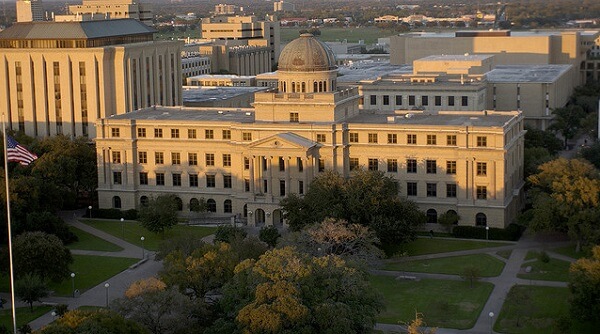
TAMU has been ranked among the top five universities in the country for "best value," "best outcomes for low-income students," and "graduates that recruiters prefer to hire."
This university became the first public postsecondary school in Texas in 1876. It has an enrollment of more than 64,000, the second-largest in the United States. U.S. News rates TAMU as the nation's 66th-best university. There are more than 15,000 graduate students, who choose from among 270 degree programs in 18 colleges. The College of Education and Human Development is the 47th-best such school in the country, according to U.S. News. The master's in educational administration program involves 36 credit hours in five semesters, with an emphasis on PK-12 educational leadership. All classes stress social justice, social responsibility, and ethics. Two semesters consist of an internship. Graduates are eligible to take a principal certification exam. Entrance requirements include PK-12 teaching certification and two years of full-time teaching experience.
#4 — Johns Hopkins University
Master of Science in Education
Baltimore, Maryland
Program Website

The first research university in the United States, JHU has led the word in research funding each of the past 38 years.
A private school founded in 1876, Johns Hopkins has an enrollment of more than 20,000 students. Twenty percent of them are from outside the United States. U.S. News ranks the university in a tie for 10th-best in the country. This is a highly selective school, accepting only 14 percent of student applications. Ninety-three percent of JHU's students graduate. The student-to-faculty ratio is an outstanding 7:1. Researchers working at the university have won 27 Nobel Prizes. The College of Education, where about 2,600 students are enrolled, offers 13 graduate degree and certificate programs. The 39-credit-hour master's in education, which features a concentration in educational studies, has a tuition rate of $805 per hour. It is affiliated with the Teach for America program, which strives to improve the quality of education in low-income communities. Among other 39-hour programs is a master of arts in teaching, with a concentration in either elementary or secondary education.
#3 — University of Georgia
Master in Educational Administration and Policy
Athens, Georgia
Program Website

This school, founded in 1785, bills itself as "the birthplace of public higher education in America" because it was the nation's first state-supported university.
UGA is the No. 13-ranked public university in the country in the U.S. News survey. The school, where the average student has a GPA above 4.0, has been one of the nation's top three producers of Rhodes Scholars over the past 20 years. More than 37,600 students take classes in 17 colleges and schools that offer master's degree programs in 130 fields. The College of Education, established in 1908, consists of nine departments. Among the master's degree programs are educational psychology; learning, design and technology; learning, leadership and organizational development; middle grades education; reading education; science education; and workforce education. The master in educational administration and policy is a 36-credit-hour program. Eighteen credit hours of elective classes, three hours of research and three hours of an applied project round out the program.
#2 — Purdue University
Master of Science in Education in Curriculum and Instruction
West Lafayette, Indiana
Program Website
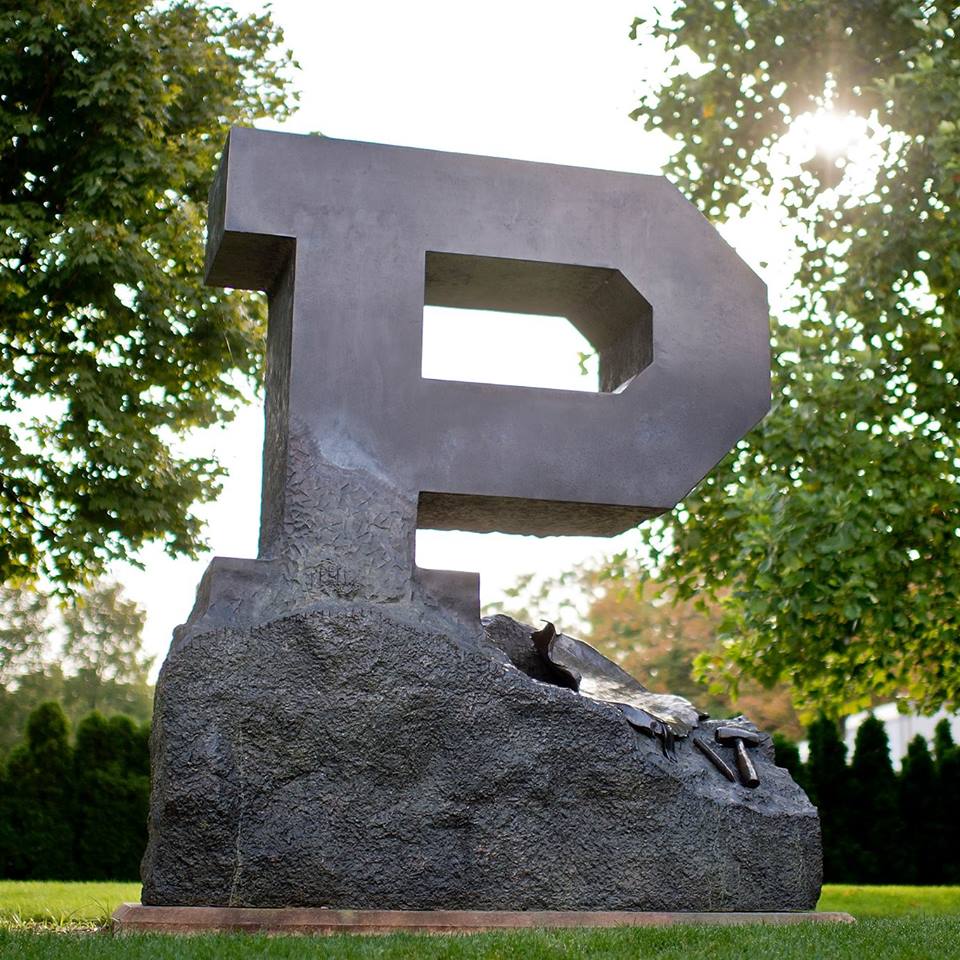
Purdue is the 56th-best university in the country, with the 21st-best undergraduate programs in teaching, according to U.S. News.
Founded in 1869, this public university consists of 13 colleges and schools. More than 31,000 students represent all 50 states and 131 countries. Only three other U.S. postsecondary institutions enroll more foreign students. Purdue offers 200 undergraduate and 70 graduate degrees, including 19 online master's programs. Among the online master's in the College of Education are applied behavioral analysis; learning design and technology; and special education. The master in curriculum and instruction, which College Values Online ranked as the No. 1 value for an online degree in the United States, entails 30 credit hours that can be completed within 18 months. Tuition is just $329 per hour. Core courses include two seminars; theories and trends in education; multicultural education; teachers as leaders; and an inquiry into practice capstone. There are concentrations in English language learning; gifted, creative and talented studies; mathematics education; and educational technology. The program emphasizes "social justice, strength-based approaches, and K-12 STEM education."
#1 — North Carolina State University
Multiple Master's Degrees in Education
Raleigh, North Carolina
Program Website

NCSU ranks among the top 20 universities in the United States in terms of its graduates' desirability to job recruiters.
This public university traces its history to 1887. More than 35,000 students, representing 120 countries, take classes in 300 degree programs at NC State's dozen colleges and schools. Nearly a third of the student body is pursuing graduate degrees. There are more than 90 online master's programs. This is a selective school that accepts only about half of the students who apply for admission. The class of 2019 had an average high school GPA of 4.44 and included 130 valedictorians. Two-thirds of those admitted to the university earn degrees. U.S. News ranks NC State 80th-best overall and No. 6 for "best value" nationally. The newspaper lists the university's College of Education 46th and its online graduate programs in education 15th. The college has an amazing student-to-faculty ratio of 3.1:1. Its online master's programs include curriculum and instruction, learning design and technology, educational training and development, science education, technology education, school counseling, adult and community college education, and student development.